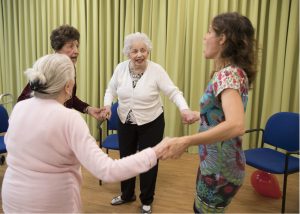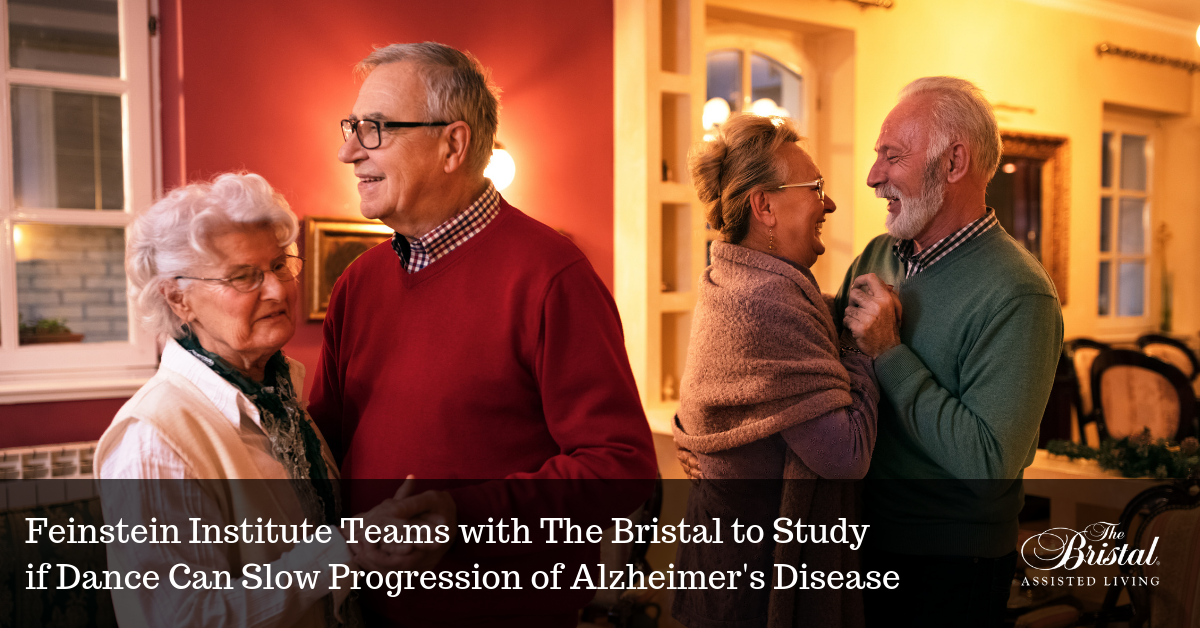The Bristal and The Feinstein Institute are proud of their collaborative work being done at The Bristal at Lake Success. Below is a recent press release from The Feinstein Institute after a recent event to introduce this amazing new dance study.

Assisted living residents are spending time on the dance floor to participate in a new study evaluating if dance can help slow the progression of memory loss. The study is overseen by leading Alzheimer's disease researcher Peter Davies, PhD, director of the Feinstein Institute's Litwin-Zucker Center for Alzheimer's Disease and Memory Disorders, and taking place at The Bristal Assisted Living in Lake Success.
"The prevalence of Alzheimer's disease, dementia or other memory disorders among assisted living residents is very high and this really impacts their ability to enjoy life and remain active," Dr. Davies explains. "I'm thrilled to partner with The Bristal Assisted Living so that we can rigorously research if dance and our other programs can help slow the memory loss associated with Alzheimer's, dementia and other memory disorders. Residents participating in the program have the opportunity to enjoy themselves and help us to find out if there is some cognitive benefit."
Assisted living communities are an increasingly popular option for senior housing and care as they provide residents a more enriching environment. It has been shown that activities, personal engagement and physical health have helped keep residents in assisted living longer, delaying the move to a more institutional environment. Dr. Davies with his team – Erica Christen, RN; Amber Sousa, PhD; Jeremy Koppel, MD; and Cecilia Fontanesi, R-DMT, MPhil – will study over the next two years whether dance, strength training and programs to enhance cognitive activities could improve residents' lives.
"I'm very happy to work with Dr. Davies to encourage assisted living residents to move and connect with each other," said Ms. Fontanesi. "The dance therapy classes build a sense of belonging, motivating residents to stay engaged in the community, enriching their lives and knowing that they matter."
Ms. Fontanesi's first therapy session started with the residents passing around a balloon, initiating purposeful movement while retaining a shared focus, and ended with the residents delightfully dancing to "Cheek to Cheek" by Frank Sinatra.
The study is funded by The Bristal and these activities take place in a 1,100-square-foot clinical space created specifically for Feinstein Institute researchers at The Bristal at Lake Success, which is The Bristal's first community dedicated to helping residents with memory disorders.
Said Kimberly Bent, MSW, Executive Director of The Bristal at Lake Success: "Not only will our residents benefit from this research, but it is also our hope that the findings discovered here will benefit assisted living residents across the country suffering from memory disorders."
Check out some clips from the program:
The Island Now also covered the event. Read their story here:




